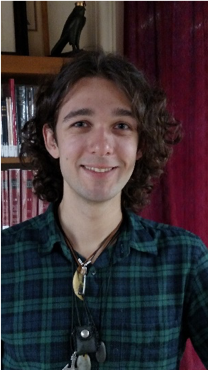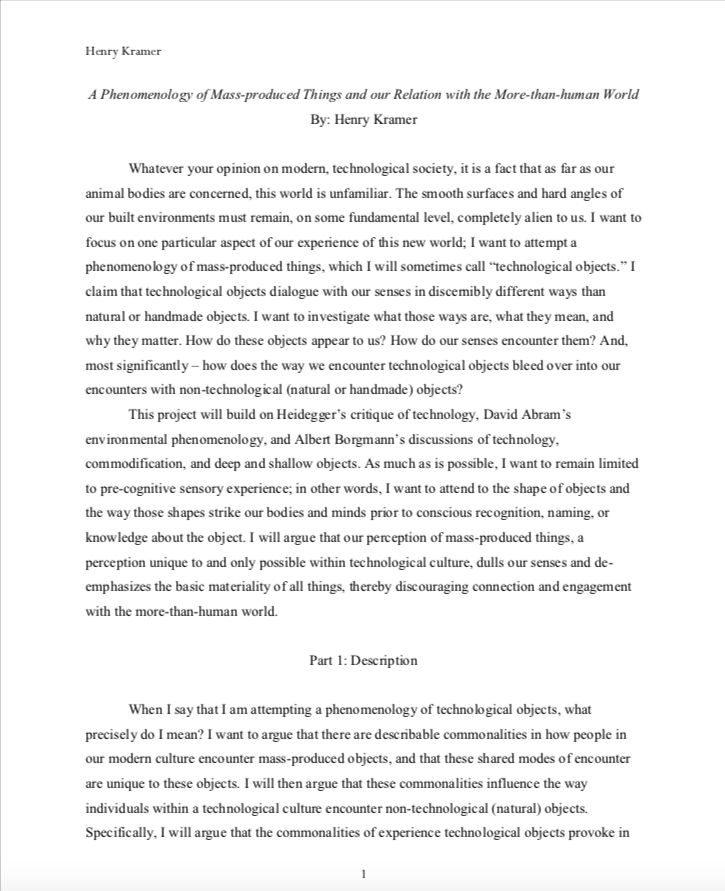 A Phenomenology of Mass-Produced Things and our Relation with the More-than-human World
A Phenomenology of Mass-Produced Things and our Relation with the More-than-human World
Henry Kramer, MA (In Progress) at University of Montana, 2019 Merlin Student Fellow
NOTE: An iteration of this paper was presented at the 16th Annual Gonzaga Graduate Philosophy Conference and received the HUTCHINS AWARD IN PHILOSOPHY for best paper in the conference. It is featured here on our website by permission of the author.
ABSTRACT: Whatever your opinion on modern, technological society, it is a fact that as far as our animal bodies are concerned, this world is unfamiliar. The smooth surfaces and hard angles of our built environments must remain, on some fundamental level, completely alien to us. I want to focus on one particular aspect of our experience of this new world; I want to attempt a phenomenology of mass-produced things, which I will sometimes call “technological objects.” I claim that technological objects dialogue with our senses in discernibly different ways than natural or handmade objects. I want to investigate what those ways are, what they mean, and why they matter. How do these objects appear to us? How do our senses encounter them? And, most significantly – how does the way we encounter technological objects bleed over into our encounters with non-technological (natural or handmade) objects? This project will build on Heidegger’s critique of technology, David Abram’s environmental phenomenology, and Albert Borgmann’s discussions of technology, commodification, and deep and shallow objects. As much as is possible, I want to remain limited to pre-cognitive sensory experience; in other words, I want to attend to the shape of objects and the way those shapes strike our bodies and minds prior to conscious recognition, naming, or knowledge about the object. I will argue that our perception of mass-produced things, a perception unique to and only possible within technological culture, dulls our senses and de- emphasizes the basic materiality of all things, thereby discouraging connection and engagement with the more-than-human world. Click here to read Henry’s paper!
About the Author

A graduate student at the University of Montana, Missoula, Henry is currently working toward twoDegrees — one in Environmental Philosophy, and the other in Literature. A lover of inquiry and wonder, clarity and understanding, and being immersed in the great outdoors, Henry’s philosophical interests lie in the phenomenology of nature (i.e., eco-phenomenology) and the phenomenology of imagination and story. Over the course of his young life, he has served as a panelist for the United Nations, a speaker on Tedx, and a guest lecturer at Hunter College, as well as a coordinator and facilitator for the Joseph Campbell Mythological Roundtable at the Center for Symbolic Studies in Rosendale, NY and a work-study assistant to cultural ecologist and philosopher David Abram.

